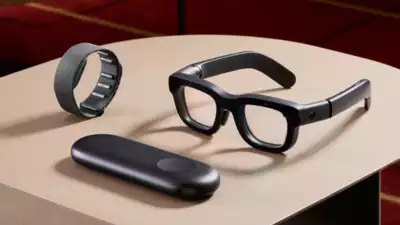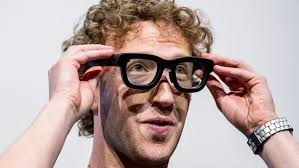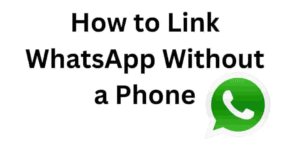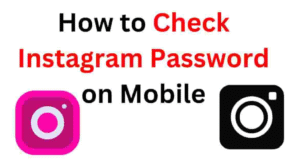Key Points
- what was once a communication platform and content distribution system for social networking, such as Facebook, has actually limited itself to ‘smart glasses’ in VR and AR.
- In the wake of the demonstration of Orion smart glasses, Meta has announced its intentions to further bolster ties with software developers as it embarks on developing a consumer design for the gadget.
- Aggressively enhancing the sales of Ray-Ban Meta smart glasses, the company desires more consumers for its current generation for the upcoming holiday shopping season in 2024.

In October 2021, when Facebook decided to take the name Meta, the CEO Mark Zuckerberg seized the opportunity to reveal to the audience his concept of the working and entertainment environment of the future, which will be available with the use of the virtual reality helmet. Shortly after, the organization began to unveil its gaming ecosystem named Horizon Worlds wherein users could access customized avatars as floating images.
As the Rebranding to Meta nears the third anniversary, none of that stuff has gone mainstream.
Lesser threat has been taken by the company in overcoming virtual and augmented reality through a different medium.
Having partnered with Ray-Ban, the market for smart glasses was penetrated with amazing early success, and now the focus is on making buzz for the prototype of a more hi-tech smart glasses project known as Orion, which has taken almost a decade of research. It is safe to assume that the launch of Orion by Calendars and the associated events presented the publishers with interest levels not commonly associated with the metaverse.
The positive outlook presented by a triumphant on-stage performance during the Connect event hosted by Meta, brought solace to a number of team members and also showed a change in the company’s attitude about Mark Zuckerberg’s expensive dream of hardware, as several people familiar with the matter who requested anonymity due to confidentiality mentioned.
During the demonstration, Zuckerberg first took the apparatus out of a secured steel suitcase. Next, while showing the gadget novelty to the audience that was present, he put on thick black augmented reality glasses and then removed them. Orion is shipped with a wireless puck to enable the projection of virtual holographic images in conjunction with the surrounding visuals. It also comes with a wristband that senses the electrical impulses from the brain helping the wearer operate the device.
The demonstration produced no hitches. The onlookers gasped in amazement. Few who were fortunate to use it wrote glowing praises about the product. Julia Boorstin of CNBC narrated to her producer a phone call she had during a broadcast and said “It felt as if I was FaceTiming my producer who came to work that day with a pair of glasses on”. Alex Heath of The Verge had the chance to play Zuckerberg in a Pong match and claimed to have “experienced almost zero latency during the course of the game”.
“Orion should be seen as a device that can allow a user to travel time,” Zuckerberg informed the attendees of the last Connect. These glasses are real, they are cool and they are just a preview of what I am confident will be a very interesting future.”
Following the launch event of the Orion display, Meta is looking to develop a closer collaboration with software developers as it aims to work on a version of the product for the consumers, and to promote the existing generation of Ray-Ban Meta smart glasses for a wider consumer base in time for the 2024 festive season.
In addition, the company is exploring opportunities that would enable the technology behind Orion wristband to be incorporated into its other consumer products, most importantly Quest VR devices and Ray-Ban Meta smart glasses, as claimed by one of the sources.
For Meta, the surge in employee and user morale comes long after Wall Street re-engaged with the stock. After the company lost nearly 66% of its value within the span of a year-2022-shedding 21000 jobs which is about a quarter of its workforce, the share price of Meta more than tripled within the last year and has already advanced by more than 60% this year, reaching an all-time high.
Meta has proved the durability of its leading position in the worldwide advertising markets by re-engineering the core platform after the iOS privacy changes pioneered by Apple made user targeting difficult and incorporating creative AI technology to assist brands with running such campaigns.
The problem, however, is that there are hardly any convincing examples of such a transformation in a ruthless rivalry such as the one that exists in the listed industry.
There were several attempts when Facebook was figuring out how to expand its virtual reality ecosystem. It all began back in 2014 with the acquisition of Oculus, a VR company worth two billion dollars. Since that time, the business has invested over $63 billion in a branch that is currently referred to as Reality Labs – a division focused on augmented and virtual reality hardware and software – and is incurring at least several billion dollars in operating losses every quarter.
In the second quarter of this fiscal year, however, the entirety of Reality Labs contributed only $353 million in revenue, which is less than 1 % of the entire revenue that the company generated. Across the Board, global Reels content growth market and Augmented Reality content market was estimated to have shipped 1.1 million units, which is a 28% decline year on year, according to the research firm IDC.
In response to criticisms directed towards the vision of the metaverse, Zuckerberg stated in hose that “this is a very long-term gamble.” “I mean at a very deep level I understand the discomfort that many investors have with it because it is just outside the model of I think even most long-term investors.”
Commerce offers a concrete illustration of the strategy of the company and a rational and persuasive future movement after smart glasses, as per insiders acquainted with Reality Labs for CNBC.
A project 10 years in the making
In the company’s roadmap, such have been the chances provided to few that those familiar have revealed plans put in place to start engaging developers as early as next year. This suggests a sense of urgency to engage developers in order to generate relevant app ideas associated with Orion.
Engaging in this effort to bring on board this arm of the community is likely to coincide with the launching of the next generation of the company’s family of artificial intelligence products, the Llama. With the launch of another stronger Llama, it is the hope of Meta that developers will freely use the software for their upcoming AR apps with functions such as object recognition and more enhanced voice command recognition, the sources said.
In the end, the sources revealed that Meta is striving towards a consumer-friendly version of Orion which should be ready in about two years.
Perhaps that this is an overly optimistic estimation gives the amount of time that has been used to develop Orion up to this point.
People who are acquainted with the matter say that Orbital Research began developing the device as early as 2016, under the direction of the then-chief scientist Michael Abrash, of Oculus. Currently, Abrash is the Chief Scientist at Reality Labs.
In 2018, the project ceased to exist purely in research and development on the orders of Andrew “Boz” Bosworth, who was at the time head of hardware at Facebook and is now CTO at Meta.
The people explained that there was at one time a version of the gadget which had AR visuals, but this could only work under very stringent conditions. For instance, the visuals, they said, could not be used outdoors.
They said that Meta has over two years been trying out functional versions of the Orion glasses and developing it to a stage where it be possible to present it to the wider company and exterior parties. The prototype was finished by the company in March. According to sources, there was a lot of engineering effort on the device to ensure that it weighs less than 100 grams (3.5 ounces) which is almost double the weight of heavy glasses and with a 70 degrees of the field perspective.
Zuckerberg, who is the main propeller of the company’s progress in AR and VR, was the one who decided to reveal the existence of Orion, sources claim.
Building on surprise success
It is probable that Meta will take many more years before a consumer version of Orion, or anything close to it, can be made available as there are many challenges with mass production that they have to deal with first.
“One can see why some may call Orion vaporware,” argued Joseph Bonner, an analyst with Argus Research, in comments to clients dated October 4 and referring to “technology that may not materialize in an actual product.” who has a recommendation for buying the shares. In his view, the item shows “Meta’s ongoing dedication to virtual and mixed reality technologies.”
It will be imperative that Meta construct a global manufacturing supply chain that is capable of sustaining some of the exotic materials used in the device. Mass production of silicon carbide will pose another challenge, since it is an important material for the screens installed in the Orion lenses.
According to informed sources, Meta has recruited a senior executive from foundry GlobalFoundries in order to manage the supply chain of EPIC and other AR/VR devices.
In the meantime, Meta seeks to expand upon the success they achieved with the second-generation Ray-Ban Meta smart glasses.
Launched last September in association with EssilorLuxottica, the product offered various improvements such as an enhanced camera system, a longer-lasting rechargeable battery, and an artificial intelligence voice assistance.
In fact, this pair of smart glasses reached TikTok’s popularity levels during the holiday season and surpassed both companies’ sales estimates. IDC reports that over 730,000 units have already been sold in the first three quarters of their release. Back in July, Zuckerberg said about the glasses, ‘It was a bigger hit sooner than expected.’
In the previous month, it was decided by Meta and Luxottica to prolong their collaboration with the intent to launch a fatter, third generation of the lenses of their glasses during the forthcoming holiday season. A small display on one of the lenses is expected to be incorporated in the new apparatus, according to sources familiar with the matter.
A Luxottica spokesperson was unavailable for further inquiries.
Meta has without delay opened a direct marketing strategy such as a pop-up shop to market the smart glasses and to make them accessible to more consumers.
The pop-up store will take a place in a retail space in Los Angeles. BDS Connected Solutions has published a job and is seeking retail staff in the West Hollywood area.
“We are gearing up for the most phenomenal Meta pop up in the center of Los Angeles,” is how BDS describes the post on X. “It will feature lowriders, street vibes and all things LA. We are proud to say that this pop up will be nothing short of Los Angeles in Southern California.”







